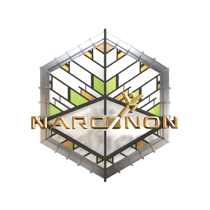Three Key Steps to Focus on While Overcoming Alcoholism

Millions of Americans struggle with alcoholism. There are as many reasons for alcoholism as there are alcoholics. Just one example of how this unfortunate condition can come about is with weekend binge drinking—a pastime that may seem like innocent fun to many people. But too much weekend partying can land one into alcoholism. Look at these stats from the 2019 National Survey on Drug Use and Health:
- 23.9% of Americans aged 12 or older were past month binge alcohol users,
- 5.8% were defined as heavy alcohol users and
- Approximately 5.3% of Americans aged 12 or older had a past-year alcohol use disorder.
These few statistics represent millions of people who have a drinking problem or are alcoholics. They also indicate that millions of people are in for trouble. Why? Because over-drinking is risky for personal health and safety. And overcoming alcoholism is not easy. So now what?
There Are Solutions
A datum to know is that there are some promising stats on the recovery side of alcoholism, but these stats aren’t easy to find. One can effortlessly find the doom and gloom statistics of alcoholism and related deaths and disorders. But how many alcoholics recover? Wouldn’t it be nice to see a more positive and hopeful statistical side?
Though more research should be done on actual recovery statistics, there is some information that gives hope. A study published in the National Library of Medicine in 2017 concluded that 10s of millions of Americans had overcome alcohol and other drug addictions.
Though this study does not separate alcohol addiction from other drugs, it does include alcoholism.
The study refers to individuals who had assistance in getting clean, whether through traditional or non-traditional means. And the conclusion leads to another obvious conclusion; recovery from alcohol addiction is more likely to happen with treatment. Treatment is the first step of three basics steps that can help lead to full recovery from alcohol abuse.
The steps to overcome alcoholism are not necessarily universal, and no one form of treatment works for every person. However, these are the three primary steps that an alcoholic and the family can focus on to overcome alcoholism.
Step 1—Decide to Get Treatment and Get it.
The decision to participate in treatment for alcoholism rarely comes easily. The first hurdle to overcome is the admission of a drinking problem. Most individuals struggling with alcoholism don’t admit they have an issue—at least not at first. “Functioning alcoholics” can be difficult to close on the idea of getting help. They are usually working, have stable relationships and don’t drink every day. “So, what’s the problem?” the drinker asks, while everyone in the drinker’s circle can see the obvious – there is a problem, and treatment is needed. How is this veil of self-deception pierced so the alcoholic can realize the truth?
A drinker often “sees the light” through an intervention—either planned by family or not planned, as in the case of arrest. Whether it comes about through a sudden jolt or an organized meeting, an intervention can help an alcoholic understand the ramifications of drinking—on themself and loved ones. This realization leads to the decision to get help. But what kind? And where?
The family should consult with qualified professionals to determine the best treatment options for the situation at hand. There are various stages of alcoholism, such as occasional abuse and binge drinking, daily drinking, problem drinking, alcohol dependence, and addiction. An individual in any stage of alcoholism benefits from treatment, but some drinkers require more treatment and immediate access to avoid a point of no return. According to the Centers for Disease Control, excessive alcohol use is responsible for more than 95,000 deaths in the United States each year, or 261 deaths per day. These are startling numbers, and it’s advisable to ask a trusted professional and get it right.
Attending 12-step meetings or speaking with a counselor or spiritual advisor can be an excellent place to begin for some. Others require a higher level of treatment immediately. An alcoholic needs social and familiar support and guidance when investigating treatment.
Step 2—Make a Lifestyle Change

A lifestyle change must accompany any therapeutic process, whether a recovering alcoholic is staying clean through AA meetings or has just arrived home clean after rehab.
During the early stages of recovery, the recovering alcoholic should attend support groups or stay connected with other sober people. Treatment includes identifying and dealing with drinking triggers—those things that trigger a person into wanting a drink. Support meetings allow the opportunity to practice what was learned in treatment and discuss the experience. Any hope for a future sober lifestyle necessitates avoiding these triggers and socializing with positive influences. A positive environment can help the individual learn that there are other ways of dealing with negative emotions than the bottle—and such an environment can help the individual focus on their strengths, rather than cave-in to weakness. According to Newman Interventions, peer support groups are one of the most successful aftercare support approaches.
Unfortunately, 2020 was not a good year for most Americans, and the country saw drastic increases in alcohol consumption. According to Nielsen’s data, retail alcohol sales in the United States soared. By the end of March 2020, sales of alcoholic beverages spiked by 55%. The ongoing pandemic can make it seem difficult for those in recovery to change their lifestyle—but with a little guidance and planning, they can do it. And it should not be used as an excuse under any circumstance!
Finally, transitioning from an unhealthy lifestyle to a healthy lifestyle is vital for the recovering alcoholic (or anyone for that matter). The process takes commitment and hard work, but a healthy body and mind are worth the effort and make living more fun. Otherwise, what’s the point? Healthy habits should include a good diet, exercise and relaxation techniques such as walking, hobbies or meditation. Fear-mongering TV and social media are not part of any health routine and should be avoided. They accomplish nothing and cause worry and anxiety. This kind of media can also become addicting.
Step 3—Maintain Recovery
During the initial months or even years of recovery, those in recovery should continue to utilize resources to maintain and enjoy the sober life. Counseling sessions and support groups can help the recovering alcohol abuser stay focused on positive change to avoid falling back into old habits. Also, there are online support groups, especially during the ongoing COVID-19 pandemic. Meetings should be balanced with exercise, reading, engaging in spiritual pursuit, talking with friends or other positive activities that the individual enjoys. The person in recovery should make a list of activities that increase a sense of well-being and add them to their daily routine.
Nobody wants a relapse, but it is not an indication that one can never get clean if one occurs. Instead, the recovering drinker should focus on their positive and inner strength, pull themselves up by their bootstraps and move forward with their sober life. (Unless the relapse is extensive – then more treatment might be in order.)
Additionally, anyone in recovery will want to help others, just as they were helped along the way. Assisting others to reach sobriety is traditionally part of the recovery process, and it just feels right.
Countless Americans are struggling with similar situations, and they need a little bit of inspiration to start overcoming alcoholism.
Sources:
- Substance Abuse and Mental Health Services Administration. (2020). Key substance use and mental health indicators in the United States: Results from the 2019 National Survey on Drug Use and Health (HHS Publication No. PEP20-07-01-001, NSDUH Series H-55). Rockville, MD: Center for Behavioral Health Statistics and Quality, Substance Abuse and Mental Health Services Administration. Retrieved from https://www.samhsa.gov/data/
- Centers for Disease Control and Prevention. (2021). Alcohol and Public Health. “Deaths from Excessive Alcohol Use in the U.S.” 01-24-2021. https://www.cdc.gov/alcohol/features/excessive-alcohol-deaths.html
- CPG, FMCG & Retail. “Rebalancing The ’COVID-19 Effect’ On Alcohol Sales.” Nielsen’s Retail Measurement Services. 05-07-2020. Insights Article. https://www.nielsen.com/us/en/insights/article/2020/rebalancing-the-covid-19-effect-on-alcohol-sales/
- Newman Interventions. “Alcohol Rehabilitation in the United States.” 01-24-2021. https://www.newmaninterventions.com/alcohol-addiction/alcohol-rehabilitation-in-the-united-states/


